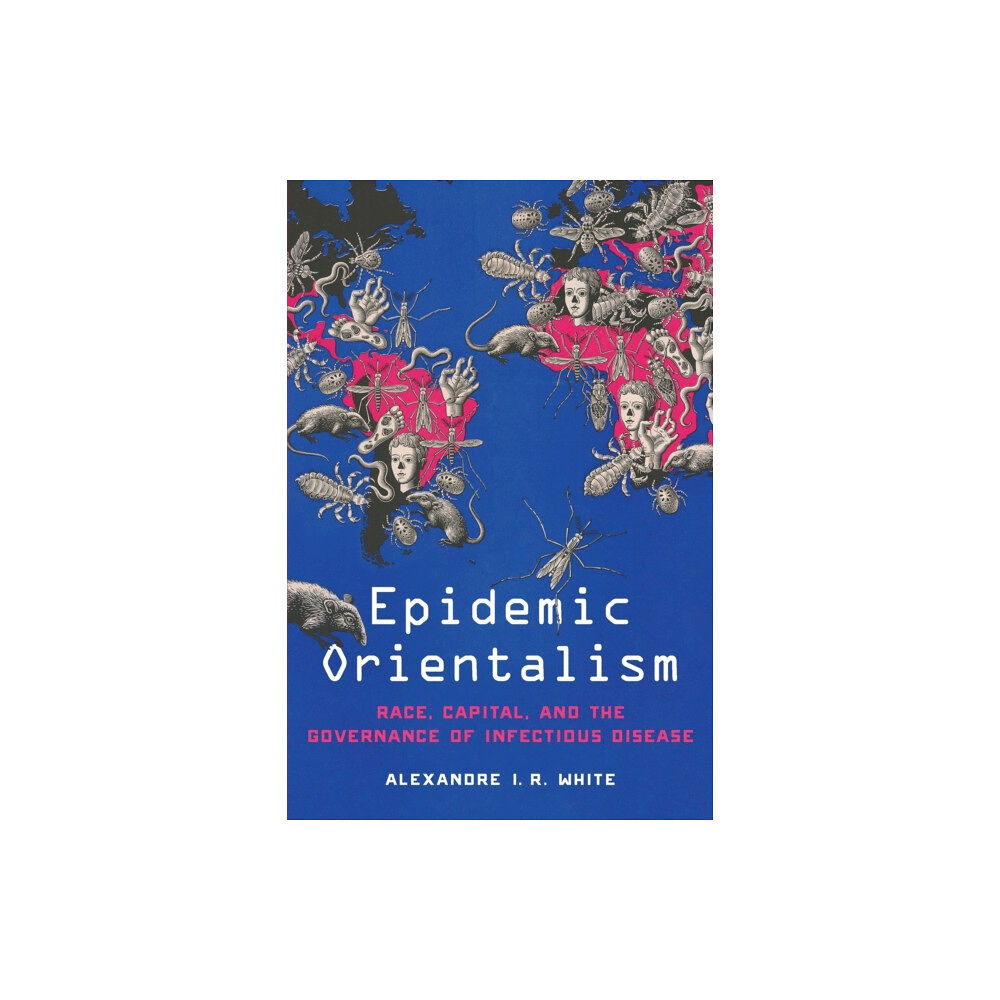- Hem
- Böcker
- Kurslitteratur
- Historia
- Epidemic Orientalism (häftad, eng)

Epidemic Orientalism (häftad, eng)
For many residents of Western nations, COVID-19 was the first time they experienced the effects of an uncontrolled epidemic. This is in part...
339 kr
385 kr
Slut i lager
- Fri frakt
Fri frakt över 299:-
Snabb leverans
Alltid låga priser
Produktbeskrivning
For many residents of Western nations, COVID-19 was the first time they experienced the effects of an uncontrolled epidemic. This is in part due to a series of little-known regulations that have aimed to protect the global north from epidemic threats for the last two centuries, starting with International Sanitary Conferences in 1851 and culminating in the present with the International Health Regulations, which organize epidemic responses through the World Health Organization.
Unlike other equity-focused global health initiatives, their mission—to establish "the maximum protections from infectious disease with the minimum effect on trade and traffic"—has remained the same since their founding. Using this as his starting point, Alexandre White reveals the Western capitalist interests, racism and xenophobia, and political power plays underpinning the regulatory efforts that came out of the project to manage the international spread of infectious disease.
He examines how these regulations are formatted; how their framers conceive of epidemic spread; and the types of bodies and spaces it is suggested that these regulations map onto. Proposing a modified reinterpretation of Edward Said's concept of orientalism, White invites us to consider "epidemic orientalism" as a framework within which to explore the imperial and colonial roots of modern epidemic disease control.
Unlike other equity-focused global health initiatives, their mission—to establish "the maximum protections from infectious disease with the minimum effect on trade and traffic"—has remained the same since their founding. Using this as his starting point, Alexandre White reveals the Western capitalist interests, racism and xenophobia, and political power plays underpinning the regulatory efforts that came out of the project to manage the international spread of infectious disease.
He examines how these regulations are formatted; how their framers conceive of epidemic spread; and the types of bodies and spaces it is suggested that these regulations map onto. Proposing a modified reinterpretation of Edward Said's concept of orientalism, White invites us to consider "epidemic orientalism" as a framework within which to explore the imperial and colonial roots of modern epidemic disease control.
| Format | Häftad |
| Omfång | 322 sidor |
| Språk | Engelska |
| Förlag | Stanford University Press |
| Utgivningsdatum | 2023-01-24 |
| ISBN | 9781503634121 |
Specifikation
Böcker
- Häftad, 322, Engelska, Stanford University Press, 2023-01-24, 9781503634121
Leverans
Vi erbjuder flera smidiga leveransalternativ beroende på ditt postnummer, såsom Budbee Box, Early Bird, Instabox och DB Schenker. Vid köp över 299 kr är leveransen kostnadsfri, annars tillkommer en fraktavgift från 29 kr. Välj det alternativ som passar dig bäst för en bekväm leverans.
Betalning
Du kan betala tryggt och enkelt via Avarda med flera alternativ: Swish för snabb betalning, kortbetalning med VISA eller MasterCard, faktura med 30 dagars betalningstid, eller konto för flexibel delbetalning.
Specifikation
Böcker
- Format Häftad
- Antal sidor 322
- Språk Engelska
- Förlag Stanford University Press
- Utgivningsdatum 2023-01-24
- ISBN 9781503634121
